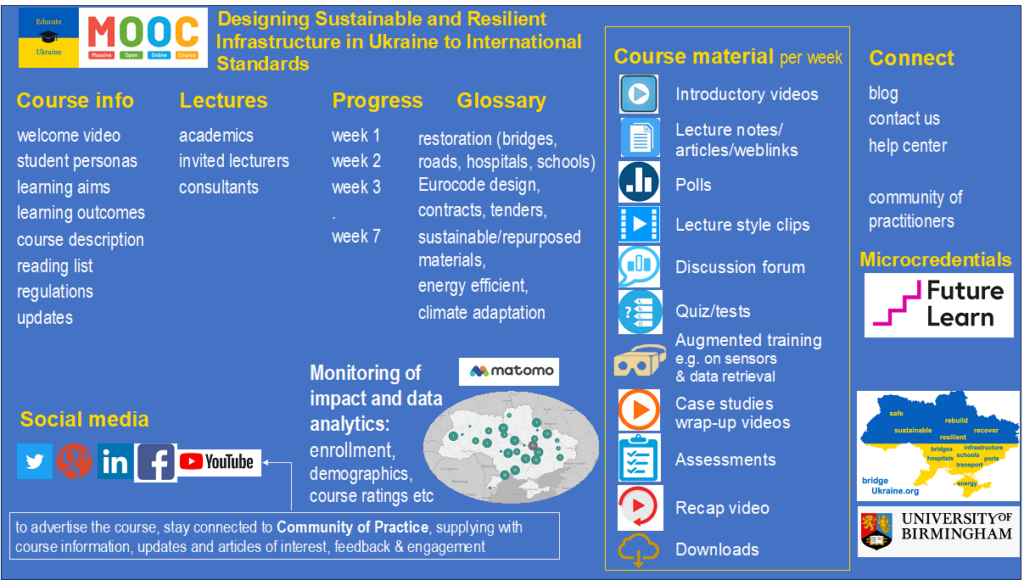

On the left, flyer that was handed to >50 participants of the Rebuild Ukraine Conference, 13–14 November 2024, Warsaw Poland. Above, Dr Nadiia Kopiika attending the conference. We attended the conference to gain a better understanding of Ukraine’s reconstruction challenges and opportunities while fostering connections that are crucial to achieving the Empower Ukraine project KPIs. Main takeaways:

Eurocodes are essential for aligning Ukrainian expertise in project management with investor requirements. The adoption of Eurocodes will enable Ukrainian engineers to lead reconstruction projects, turning the country into a “board of possibilities” and attracting skilled professionals back to Ukraine. • International projects require adherence to IFC (Industry Foundation Classes) standards. Currently, Ukrainian companies face challenges due to limited expertise in IFC, often relying on external managers or subcontractors. Enhancing education and training in this area is critical. • Digital Product Passport can ensure transparency and trust in product quality for international investors. It is increasingly required for large-scale projects and should become a standard practice in Ukrainian industries.

Figure 3: A publication led by our Ukrainian researcher Nadiia Kopiika in a top journal, demonstrating how to accelerate damage characterisation for reconstructing bridges in Ukraine. (openly available source: Kopiika, N., Karavias, A., Krassakis, P., Ye, Z., Ninic, J., Shakhovska, N., … & Mitoulis, S. A. (2025). Rapid post-disaster infrastructure damage characterisation using remote sensing and deep learning technologies: A tiered approach. Automation in Construction, 170, 105955.) https://doi.org/10.1016/j.autcon.2024.105955


Figure 4. Reconstructing Hostomel (left image), Ukraine using our methodology (HORIZON ZEBAI project). We involved engineers from Lviv Polytechnic University to design more sustainable housing in war-torn Hostomel, Ukraine.
This demonstrator comprises residential buildings in Hostomel, with a total building area of approximately 3300 m2. The primary objectives of this demonstrator are to reconstruct the building using construction waste generated during the war, thus adhering to the principles of the circular economy, and achieving a zero-emission solution. On the right the partners of the ZEBAI project are shown.

